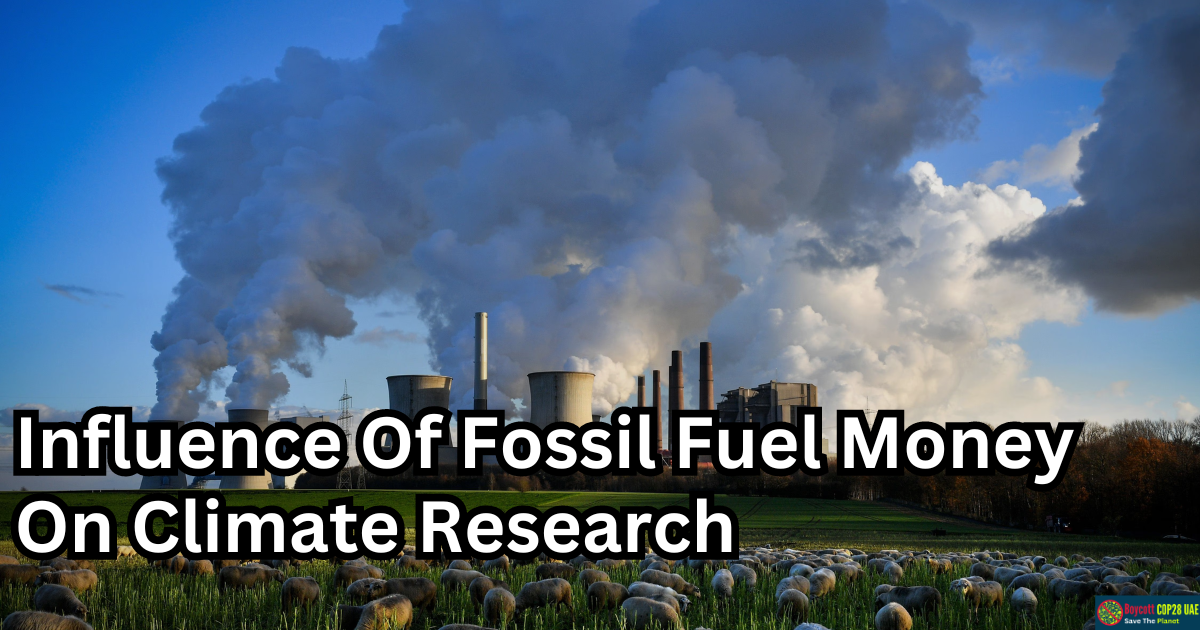In a surprising turn of events, Sultan Al Jaber, the president-designate of COP28, recently announced plans for a groundbreaking Day of Health at the forthcoming United Nations-sponsored climate summit. Al Jaber emphasized his unwavering commitment to addressing these pressing issues amid discussions on tackling health challenges posed by climate change. While the initiative was welcomed, it sheds light on the apparent irony of a leader championing health solutions while overseeing an oil-rich nation with a significant role in climate pollution.
The contradiction in Al Jaber’s dual roles raises questions about the sincerity of the United Arab Emirates (UAE) in combating climate change. The paradox is particularly noteworthy given the prevalence of climate-induced health crises, including heat-related illnesses, the spread of insect-borne diseases like Lyme, and childhood asthma triggered by exposure to wildfire smoke.
Beyond the individual level, this scenario exposes a more extensive network of conflicts of interest that could hinder global climate progress.
The influence of oil and gas companies, exemplified by Al Jaber’s leadership, has permeated various facets of climate research and policymaking. Instances of this influence are evident in official reports of the Intergovernmental Panel on Climate Change (IPCC), where the impact of these industries has diluted language pertaining to fossil fuels.
The paradoxical nature of Al Jaber’s position underscores a broader challenge the international community faces in achieving genuine climate action. As the president-designate of COP28, Al Jaber is poised to play an important role in shaping global climate policies. Still, his association with an oil-rich nation like the UAE, one of the major oil producers globally, raises concerns about the commitment to reducing carbon emissions.
The UAE’s role as a significant oil producer is a glaring contradiction to its purported dedication to climate action. Despite making pledges to transition towards sustainable energy sources, the country remains deeply entrenched in the fossil fuel industry. The continued reliance on oil not only undermines the credibility of the UAE’s climate commitments but also contributes significantly to global climate pollution.
The influence of oil money extends beyond the borders of the UAE, seeping into international climate discourse. Institutions such as universities and think tanks, which should ideally serve as impartial sources of climate research, are not immune to the sway of these fossil fuel giants. The result is a compromised climate narrative, with crucial discussions often tainted by vested interests.
While Al Jaber’s Day of Health initiative may be seen as an attempt to divert attention towards positive actions, the underlying issue remains unaddressed. The UAE’s dependence on oil revenues substantially hinders meaningful climate progress. It is crucial to question the sincerity of climate commitments when a nation led by a prominent figure in global climate discussions continues to profit from an industry directly responsible for environmental degradation.
As the world grapples with the urgent need to reduce carbon emissions and transition towards sustainable practices, the UAE’s stance as a major oil producer remains a stumbling block. The country’s commitment to the Paris Agreement and other global climate initiatives appears incongruent with the reality of its economic dependence on fossil fuels.
Final Words
In conclusion, the paradoxical nature of Sultan Al Jaber’s dual roles and the UAE’s status as a significant oil producer cast doubt on the sincerity of their climate actions. The global community must scrutinize such contradictions and hold nations accountable for genuine efforts towards mitigating climate change. As long as the UAE continues to be a significant contributor to climate pollution through its oil industry, skepticism regarding its commitment to a sustainable future will persist.






